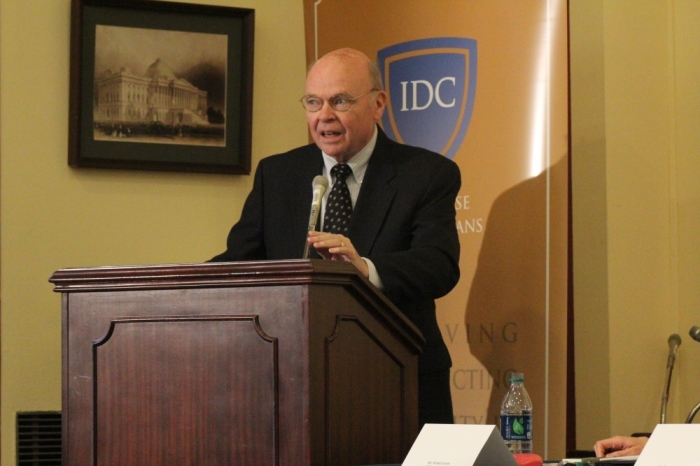Christian 'Genocide' Designation Won't Affect US Response to ISIS, Religious Freedom Amb. Says

Despite Saperstein's assertion that a genocide designation would have no effect on the administration's response to IS, Gregory Stanton, the founder of Genocide Watch and a research professor of genocide studies and prevention at George Mason University in Virginia, argued at an In Defense of Christians event on Capitol Hill in December, that a genocide designation does carry weight in international law.
"Why does the G-word matter? Why not simply call IS' crimes against Christians and others 'crimes against humanity?'" Stanton asked. "'Genocide' is much more powerful than 'crimes against humanity,' 'war crimes,' 'ethnic cleansing' or these ill-defined terms like 'global atrocity crimes.' Those don't even have a definition in the international law."
"'Ethnic cleansing' doesn't even exist in international law, nor does 'atrocity crimes,' whereas 'genocide' is actually in a convention." Stanton continued. "The reason why the word genocide matters is because words matter. People act according to words."
Stanton added that history proves that once genocide designations were made to define atrocious crimes against humanity in Bosnia, Kosovo and Rwanda, it was followed by quick international action to halt the violence.
Although the Obama administration has not designated the persecution of Christians as genocide, Democratic presidential frontrunner and former Secretary of State Hillary Clinton does believe that the plight of Christians in Iraq and Syria should be called genocide.
"What is happening is genocide, deliberately aimed at destroying not only the lives but wiping out the existence of Christians and other religious minorities in the Middle East in territory controlled by ISIS," Clinton said at a December campaign event in New Hampshire.




























